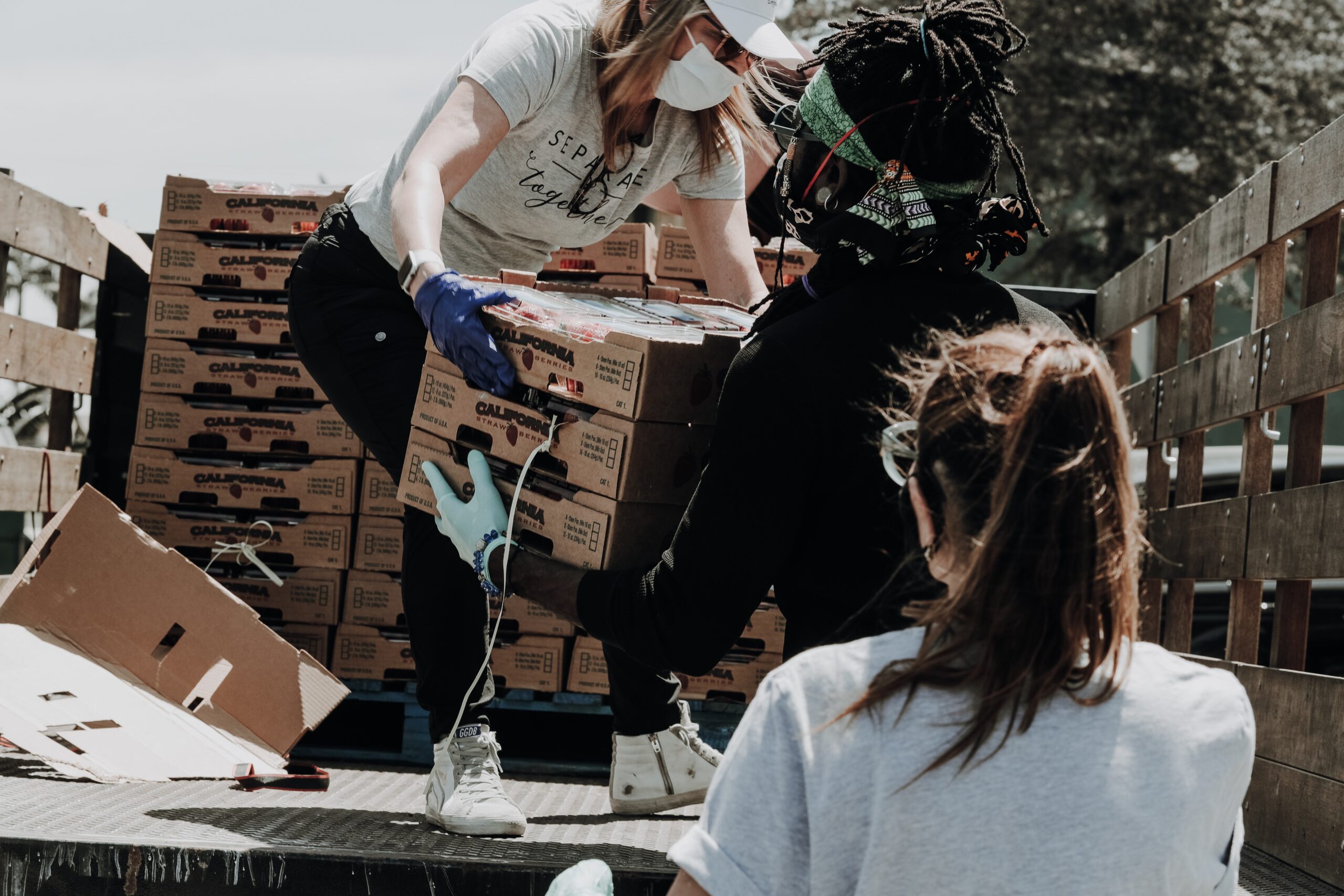Food Banks Play Critical Role in COVID-19 Response

As we know, the coronavirus pandemic has made access to basic necessities that much more precarious and vital. And as Maslow taught us, food is a foundational need, one of the core physical requirements for human survival. Food banks across our region and nationwide have long played a critical role in nourishing vulnerable populations. A recent article in the New York Times explores the skyrocketing demand on food banks and the measures being taken to support these organizations do their critical work, including partnering with National Guard units across the country to distribute food and supplies. They are emergency responders and poverty mitigators in normal times—and without a doubt, this moment is anything but normal—making their work now more critical than ever. Even as they fight to sustain services and meet increased demand, food banks are navigating new and intensified challenges due to disruptions in supply chains and impacts on their distribution centers, donations, and workforce.
Ensuring that our community has access to food is paramount. Read on to learn more about the challenges facing food banks in this crisis, the ways they are overcoming, and what you can do to support their work. Right now, food banks are responding to:
Increased need. Nearly 1 in 8 people face food insecurity in California on a daily basis. And with children out of school, vulnerable seniors at even greater risk, and a majority of the statewide population sheltering in place, demand at food banks has spiked statewide and is up 40%, on average, nationally.
Increased risk. With the risk of COVID-19 transmission ever-present, food banks must take extra precautions and adopt new and more onerous protocols to protect their staff and volunteers, the clients they serve, and their suppliers and partners. At the same time, the essential services they provide are hampered due to disruptions in the supply chain and reduced food donations. According to Katie Fitzgerald, chief operating office at Feeding America, food donations from manufacturers, supermarkets, and other retailers are down by half.
Increased urgency. This is all occurring against a backdrop of increasing urgency and uncertainty. As unemployment skyrockets, the risk of economic and food insecurity grows daily.
In the Bay Area, local food banks are bravely adapting to these impacts, while statewide the California Association of Food Banks (a 41-food bank network) is sending out extra food to create an emergency inventory and advocating with government officials to reduce administrative burdens while increasing access to food resources.
Snapshot of Response: East Bay
In Alameda County alone, before the current crisis, food banks worked to fight hunger for nearly 330,000 people throughout the year. According to Leigh Illion, Director of Leadership Gifts at the Alameda County Community Food Bank, her organization is adapting virtually overnight to serve tens of thousands more people; 50% of the calls her agency is fielding is from new clients, many of whom are elderly. She also reports that their volunteers “have stepped up in ways we couldn’t have imagined” and notes that they are ramping up the production of Emergency Food Bags—with pricier shelf-stable items like canned tuna, canned green beans and grains—at a cost of $25.20 per bag. Distribution was up to 10,000 bags a week in late March and growing exponentially. Illion reported, “Last week, we served between 42,000 – 45,000 people each day and we opened our first drive-by pop up pantry. On the first day, we had 25 households. This Monday, 381 households came for emergency boxes. We had not done any marketing but word spread quickly.”
PFS client foundations have stepped up with emergency response grants and direct donations to food banks in recent weeks. These organizations are providing critical resources in the anti-poverty fight and leading the way helping our communities survive this current crisis.
If you haven’t already, please consider support for your local food bank as part of your philanthropic response strategy.
Contact us to discover how we can tailor our services and handpick a team of professional experts to support the specific needs of your foundation.